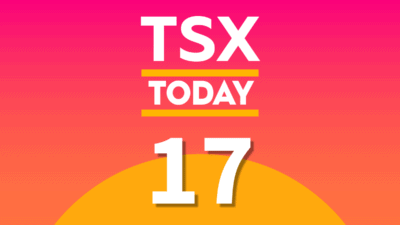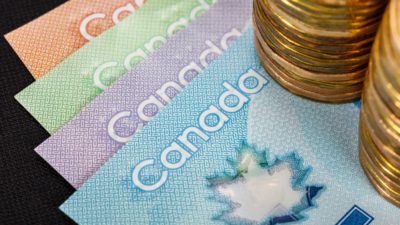Thus far, the CSeries jet has been an absolute disaster for Bombardier Inc. (TSX:BBD.B). The program has been plagued by delays, cost overruns, and disappointing order totals. Now, there’s a new obstacle: low oil prices.
Why is this such a problem? Well, the main selling point for the CSeries is its excellent fuel efficiency. Even re-engined planes from Airbus and Boeing burn slightly more fuel than the CSeries. So, as oil prices fall, so does the price of jet fuel, which decreases the advantage of CSeries planes.
Bombardier is putting on a brave face. It notes that the fall in the price of oil means customers have more money in their pockets, and can more easily replace aircraft. Oil’s fall also opens up more airline routes, which is ideal for a plane like the CSeries.
That said, Bombardier is making the case that oil will recover. As said by Mike Arcamone, president of Bombardier Commercial Aircraft, “We feel that this is going to be a very temporary dip.” That should tell you what you need to know: Bombardier is counting on higher oil prices—something that CSeries sales depend on.
How big a deal is this? Will Bombardier have difficulty making its order totals? We take a look below.
The economics have changed
Bombardier launched the CSeries program in mid-2008. At that time, the American oil price was US$145 per barrel and fuel accounted for over a third of airlines’ total operating costs. As of this writing, the price of oil has dropped by nearly US$100.
That being the case, wouldn’t airlines still want more fuel-efficient planes? Isn’t the CSeries still better positioned than its rivals? Well, unfortunately for Bombardier, it’s not that simple.
Here comes the competition
Boeing and Airbus have not stood still, while Bombardier has developed the CSeries. The first to react was Airbus, which came out with the A320neo in 2010. The A320neo comes with 16% better fuel efficiency than its predecessor. More importantly, Airbus has been heavily discounting its aircraft. According to one report, some A320s have been sold for little more than US$30 million, despite having a list price close to US$100 million.
After Airbus came out with the A320neo, Boeing responded with its fourth-generation 737 Max, which comes with 15-20% better fuel efficiency than the third generation. Boeing has also been discounting heavily, mainly in response to Airbus.
Meanwhile, the CSeries jets come with list prices of US$62 million (for the CS100) and US$71 million (for the CS300). Bombardier is also much less willing to offer heavy discounts, mainly because it does not have the scale of Airbus and Boeing. When fuel prices are high, discounting isn’t so necessary. However, in today’s oil price environment, customers don’t have to go with the best technology.
An uphill climb
As one analyst put it, this is a tale of two Goliaths and one very foolish David. Airbus and Boeing have far more resources and scale than Bombardier, and are thus able to price more aggressively. Worst of all, now that oil prices are so low, David must fight without his slingshot.







